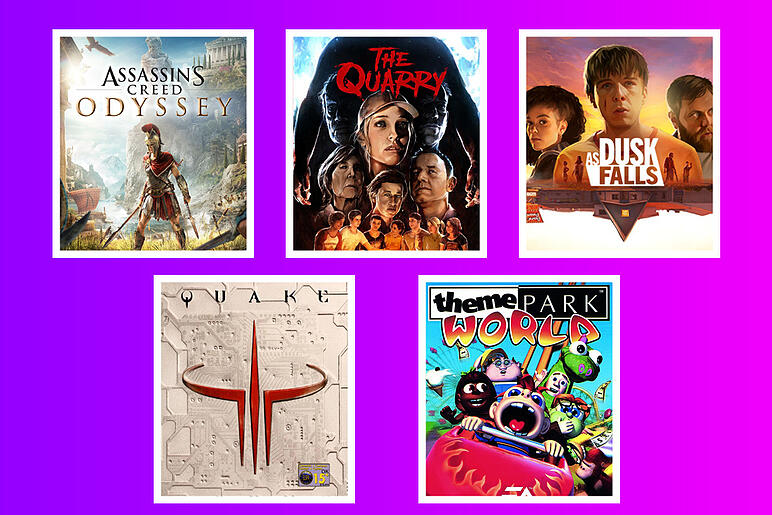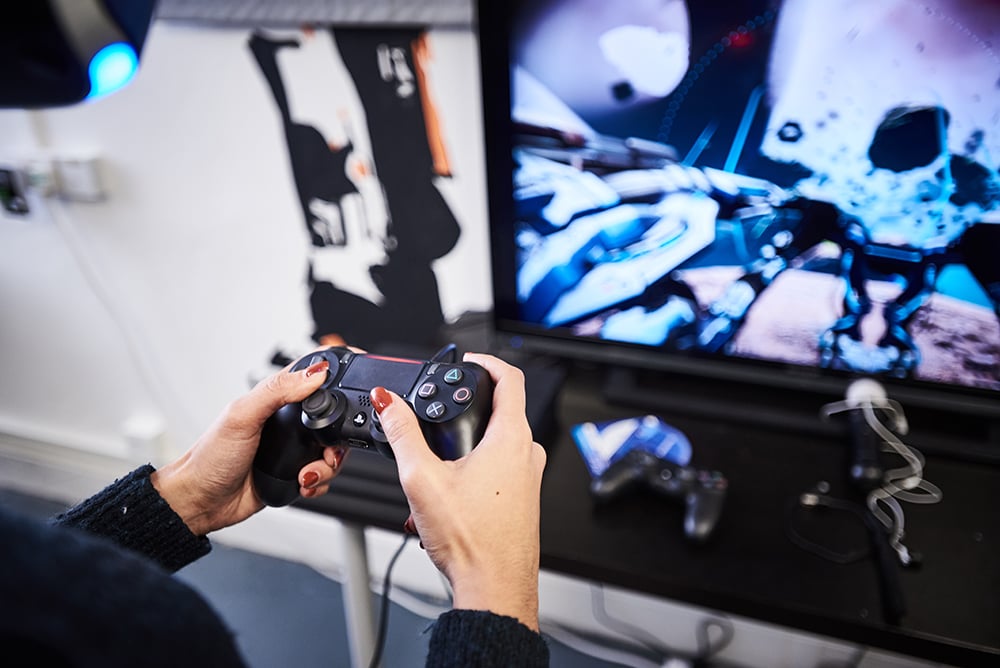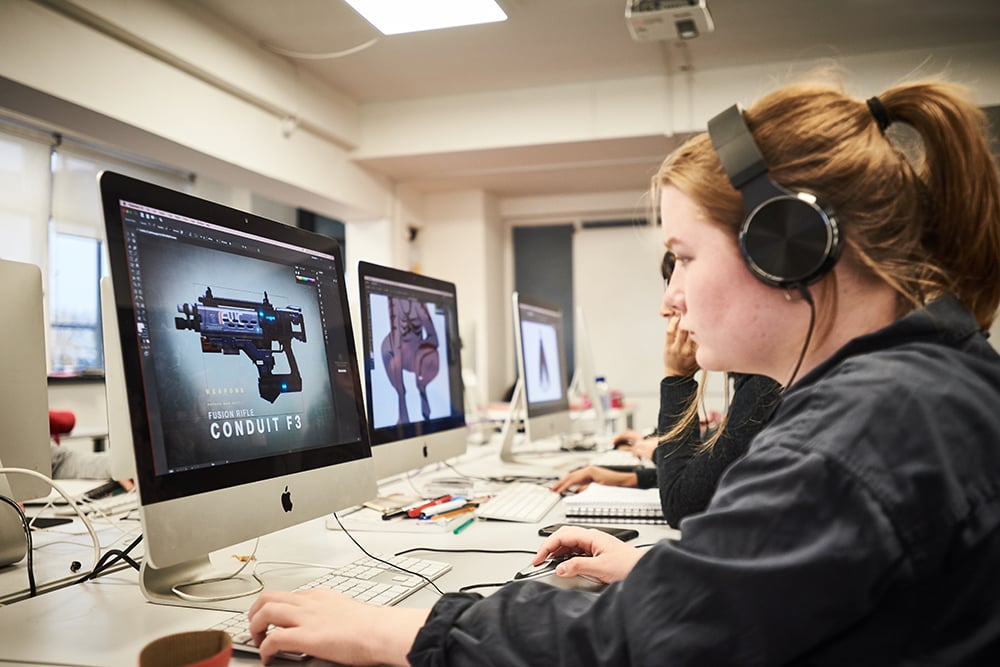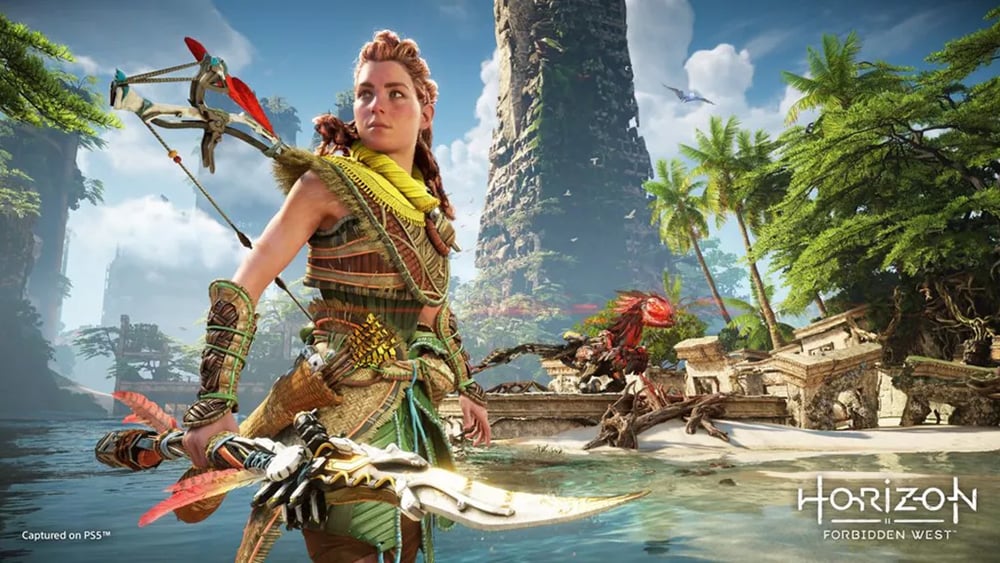Adele Cutting - founder and director of games audio outsourcing company Soundcuts Ltd - joins us to discuss gender imbalances in the gaming industry, how the situation is improving and the vital role educational institutions can play in continuing to rebalance the industry.
Stereotypes of typical video game enthusiasts are probably pretty easy for most people to conjure. They might be ‘nerdy’ and spend days glued to computer screens; sulky teenagers screaming through a headset at someone they’ve never met; young men playing FIFA as though it’s a way of life. These stereotypes may be lazy - and they certainly are - but they illuminate an unfortunate assumption that most people make about gamers; that the vast majority of them are male.
The reality is far removed from this assumption, as data from 2021 - which shows that up to 45% of gamers across the world are female - illustrates. However, the diversity of the gaming community, which is broadening across fault lines of age, gender and race every year, is not reflected in the products which drive it. Nearly 80% of game characters are male, over 50% are white and just 8.3% of main characters in games are females of non-white ethnicities.
The demographic imbalance between games and gamers is nothing unique; it’s a polarity that is found across the creative industries and is reflected in the gaming industry workforce, with just 28% of employees in the industry being female [Editor's Note - Since publication, the Varsity article this stat referred to has been removed from their website.].
Although diversity remains a live issue, as Adele Cutting - founder and director of Soundcuts - acknowledges, green shoots of progress are starting to appear behind the scenes, behind controllers and on-screen.
“When I joined EA, I think there was one other artist who was female,” Adele says, “And now I'm seeing a lot more [female] faces, so a big improvement. There's definitely room to get a 50/50 split and have more diversity, but where we are now from where we were in the 90s, as somebody who worked through it, is amazing.”
From EA to Soundcuts Ltd
Adele has been in the game audio industry for 25 years; starting her professional career as a junior sound designer at EA and working her way up the ranks of the gaming behemoth to the position of senior audio director. Considering the idea of moving back into film audio, Adele was compelled to stay in the gaming industry as the developing audio technology continued to improve and her love for the medium blossomed. During that period, Adele worked on projects including the Harry Potter games, Quake III, Theme Park World, Dungeon Keeper, and a variety of sports and driving titles.
Then, in 2011, Adele decided that the work she did could be removed from the in-house game development structure and outsourced. Following a spate of redundancies in the wake of the financial crash, including the entire studio, she put her idea into action and created Soundcuts. Described as providing “top-quality audio with great communication and organisation”, Soundcuts has worked on a range of AAA and indie projects from Assassin’s Creed Odyssey, The Quarry and As Dusk Falls to Cultist Simulator and Astrologaster.
The longevity and diversity of her career mean that Adele has been in and around major players in the industry for decades. She has seen the development of the industry first-hand and is positive about the direction of traffic for women who want to make their way and thinks that the future for women in the game industry relies on exposure to game development and STEM studies in education.

Education, being undeterred and blinkered
“I really think, it needs to be promoted in schools,” Adele says, “because it's at that age when you have to narrow down your subjects to a-levels, apprenticeships or T levels. That's the point where girls have to know that the games industry is an option. It's a case of getting visibility of women in STEM and games into schools so that the female pupils know it’s an option, because if we don't, by the time they’ve chosen their GCSEs, for many people, it's too late.”
The early exposure to tech and music-based subjects is a crucial reason why Adele went on to pursue a career in game audio. Knowing with absolute clarity that this was something she wanted to do and having the single-mindedness to chase her career, undeterred by a lack of female representation in the classroom, was essential.
“Right from the start, I decided to do music and technology-based subjects,” says Adele, “I did maths, physics and music and I was one of maybe two girls in those classes. At no point did my mum or my dad ever say, ‘Oh, love, that’s a subject for men.” They never brought it up. I did see it when I went into my physics class and I was like, ‘Oh, my God, it’s only boys, there’s only Jo (my female friend)’ That was when I was 16 but I became friends with all the people in my class and, to be honest, I didn't notice it apart from the initial reaction. I just cracked on and got on with it. So, therefore, when starting a career in a male-dominated industry, I was already used to just being around a male crowd… Nobody ever pointed out to me that I was doing something that was, historically, a male profession. I got loads of support from my parents. I had the right support system in place. I just went off and did what I really wanted to do. I was very blinkered, I thought to myself, ‘This is what I want to do, these are the steps I've got to take to do it,’ and I just got my head down and went for it.”

Broadening the scope of the industry
The clarity of vision for young girls and boys that, “this is what I want to do and this is what I need to do it” is something that can be achieved through the early exposure to STEM, tech and music subjects that Adele mentions. However, there are always pressures on educational institutions to ensure that the subjects they teach are conducive to employment and, unfortunately, a career in the gaming industry may not be at the forefront of the mind of school and college curriculum decision-makers. For students who realise that a career in gaming or game audio is what they want to pursue late, being in a ‘sister’ industry could be another viable route. Looking to these sibling industries is another method that the gaming industry can use to improve gender representation more generally and broaden the skills within the sector.
“In the gaming industry, we're very insular,” says Adele, “we talk to ‘game people’, it's all about communicating within the games industry. If your company wants to employ wider than that, you've got to speak to sister industries, where the skill sets are transferable.”
One of the ‘sister industries’ that Adele sees as an opportunity for improved diversity, is publishing. When working on the Pottermore website - the publishing arm of the Harry Potter film, game and media franchise - she found herself thinking, "There are so many women!" The transferable skills within industries like publishing mean that women who want to forge a career in gaming can do so without having had to study it from the school level; although it remains important to have the necessary skills.
“It's about making sure that when you advertise your job, you're not just advertising it in the game press or the places where gaming people look for jobs,” says Adele, “If you want diversity, you've got to advertise in other spaces, where there are lots of women”

As well as ensuring that girls are exposed to the necessary subjects at an early age and improving diversification through hiring from ‘sister industries’, Adele also thinks it’s important that women who have an urge to work in the gaming industry, understand there are many different disciplines to master. The numerous programming and audio disciplines “plus all the roles for people who are working really hard in the background,” ensure that there is ample opportunity for prospective applicants with a range of skills and differing aspirations.
The root of the issue and how it’s improving
Although the gaming industry, and creative industries more broadly, are well understood to have an issue with diversity, it wasn’t always the case. Games, in their early history, were marketed as a product for families as a unit, rather than targeted towards the male contingent specifically.
“Ironically, it’s probably the gaming industry’s fault that we're in this situation,” says Adele, “Originally when games came out in the 70s, they were marketed to everybody. They were seen as a family thing. Then sales dropped off and they decided to market it to a specific audience - men. All the advertising campaigns were all about men, so men got interested in it and the gaming industry workforce reflected that. That's when they lost female engagement. If the marketing of games had been to a wider audience, I believe it would have attracted a more diverse range of people to work in the industry.”
The gaming industry’s fingerprints may be all over the issue of lacking diversity, but it has also been instructive in trying to provide solutions. As mentioned at the beginning of this piece, there is a huge disparity between the gender and race of game characters and gamers. However, by looking at games released in the last few years, that seems to be beginning to change.

(Image credit: SIE)
“They're working on it,” says Adele, “There are some games now, like Horizon Zero Dawn and Forbidden West, with Aloy. You've got Kassandra [of Assassin’s Creed Odyssey], obviously, where you can play as a man or a woman in Kassandra or Alexios. I think they are trying to address it. There are still male characters in games as well, but it's all about representation. It's nice to see a version of yourself, you know? In the same way that Encanto has done so much for diversity with children seeing themselves as main characters in that film. I think it's really cool that things like that are finally being done.”
The steady increase of women working in the gaming industry, women playing games and women represented as characters in major AAA games is, of course, welcome. There’s still work to be done, but as Adele says, the progression the industry has made between the 90s and now is night and day. That should be celebrated.
FIND OUT MORE:
How to stand out in the gaming industry - The essential tips from our recent panel event
5 must-have soft skills gaming students need to stand out in the industry
At dBs, whatever your background is, as long as you are passionate, we want to hear from you!
Our Sound Design degree is perfect for those who are interested in game audio implementation. We've also launched new game development degrees in both game art and programming. We hope to ensure there is always an educational pathway - with industry experience as a key focus - to working in the sound and game industries. Find out more at our next open day!


